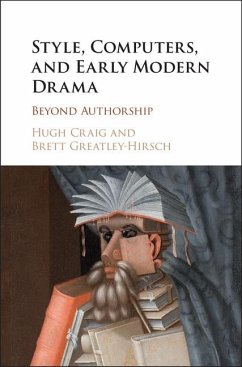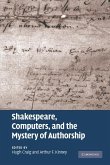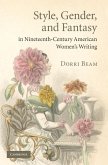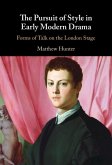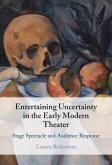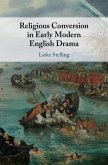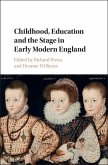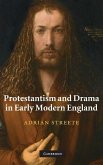Hugh Craig and Brett Greatley-Hirsch extend the computational analysis introduced in Shakespeare, Computers, and the Mystery of Authorship (edited by Hugh Craig and Arthur F. Kinney; Cambridge, 2009) beyond problems of authorship attribution to address broader issues of literary history. Using new methods to answer long-standing questions and challenge traditional assumptions about the underlying patterns and contrasts in the plays of Shakespeare and his contemporaries, Style, Computers, and Early Modern Drama sheds light on, for example, different linguistic usages between plays written in verse and prose, company styles and different character types. As a shift from a canonical survey to a corpus-based literary history founded on a statistical analysis of language, this book represents a fundamentally new approach to the study of English Renaissance literature and proposes a new model and rationale for future computational scholarship in early modern literary studies.
Dieser Download kann aus rechtlichen Gründen nur mit Rechnungsadresse in A, B, BG, CY, CZ, D, DK, EW, E, FIN, F, GR, HR, H, IRL, I, LT, L, LR, M, NL, PL, P, R, S, SLO, SK ausgeliefert werden.

